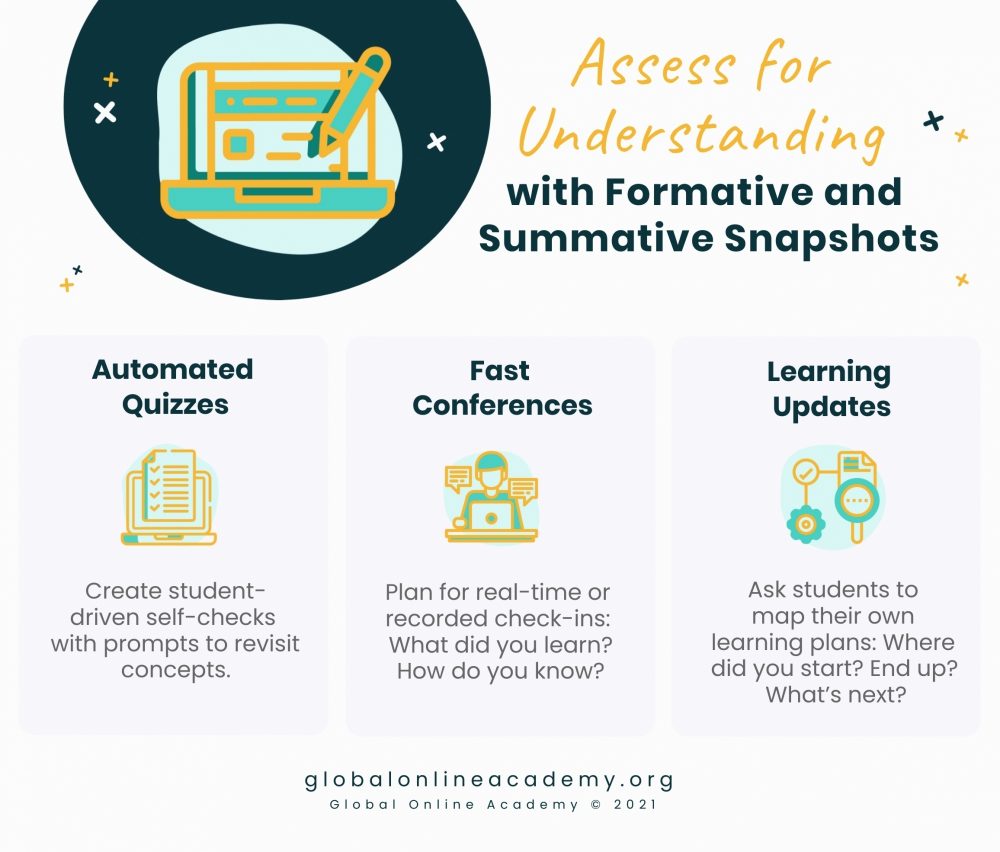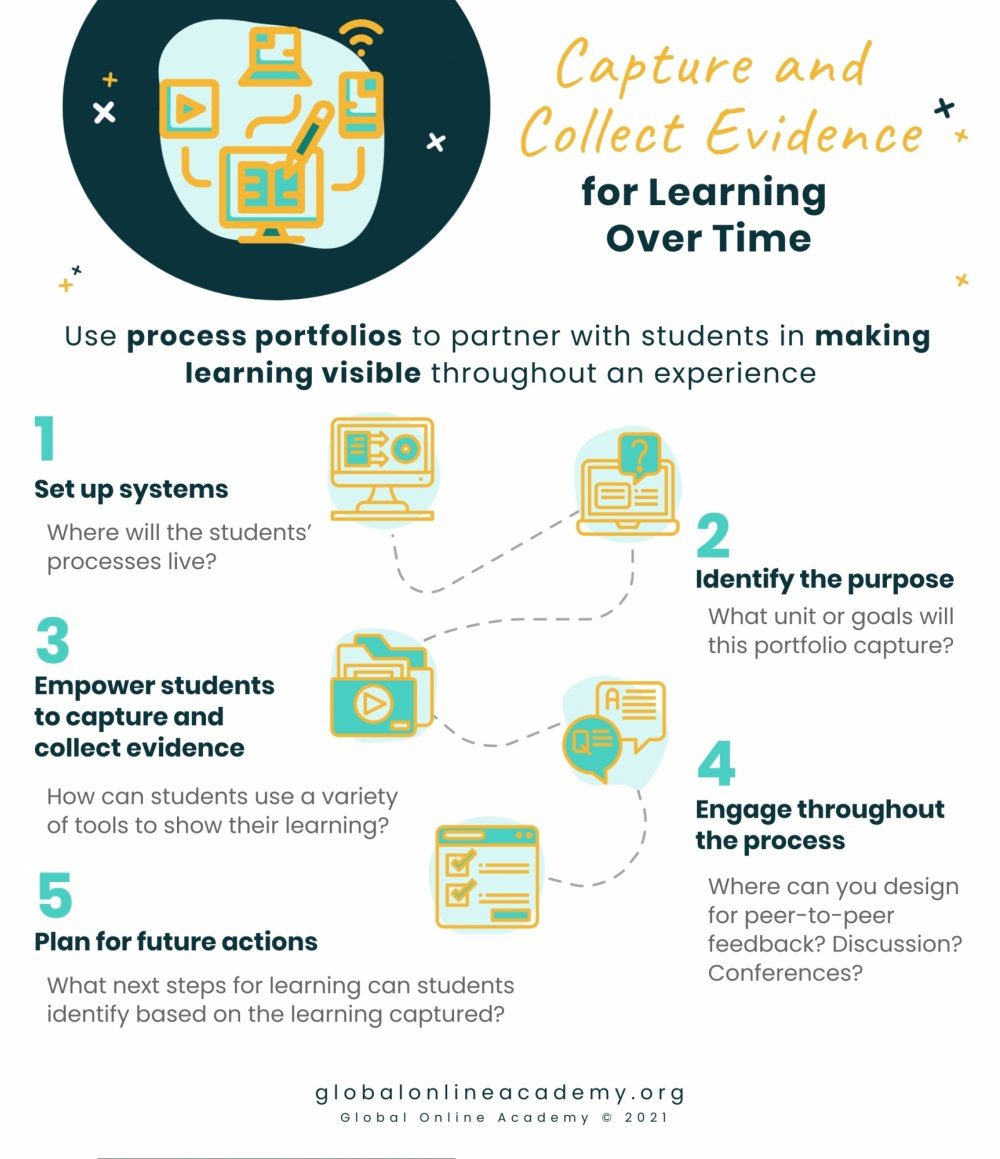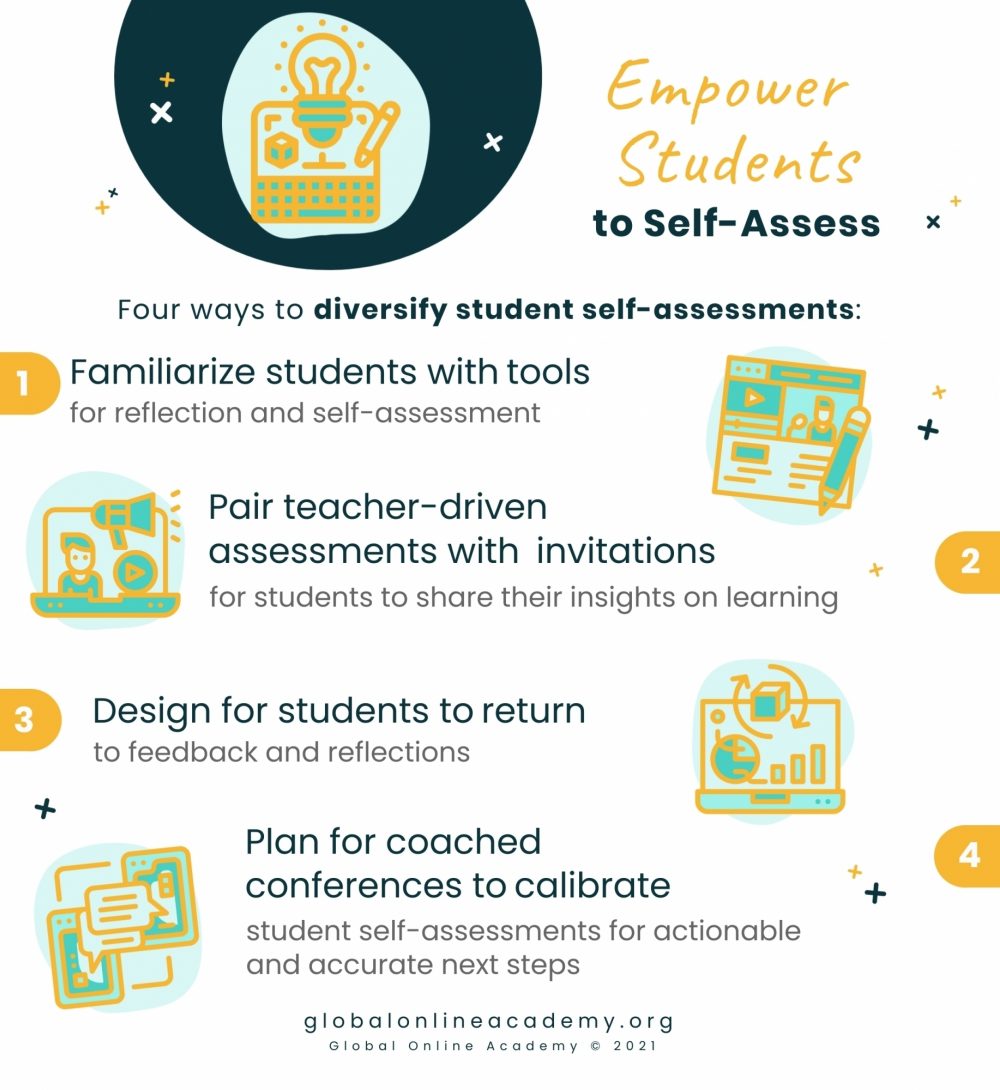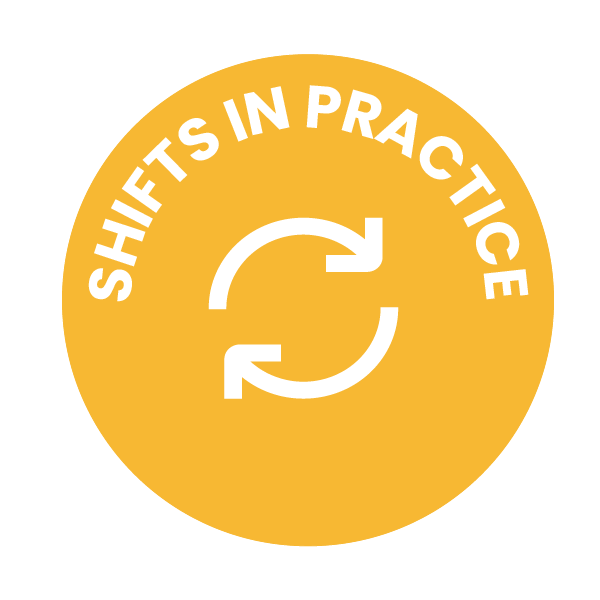Student-Centered Assessment: A Multifaceted Approach
“We need to do a better job of using our assessments to support equity, as opposed to equality or standardization. We should be working toward assessments—and assessment systems—that help us improve our practices to support student growth and student diversity...In all cases, the important thing is for educators to learn what students are learning (or not learning) as we challenge them to build knowledge, attitudes, dispositions, skills, and practices.” Dr. H Richard Milner IV
Equitable design for assessment is an opportunity to empower students to take agency for their own next steps in their learning. It invites us to consider how students can partner in knowing where they are at and where they want to be. It allows all learners to tell their learning stories.
As educators, this means we approach assessment as something that happens every day and in a variety of ways. It means assessment is not just in the hands of the teacher; it is a transparent process, in partnership with students. Designing assessment to be student-centered requires a multi-faceted approach:
1) Snapshot Assessments
Assessment is sometimes reduced to a high stakes moment in time: a student taking a single test or practicing across weeks for one shot of demonstrating a skill. But assessment is a tool that captures growth over time. It prioritizes the process of learning rather than a single anticipated moment. Snapshot assessments empower learners. When a student demonstrates learning and growth areas in multiple ways throughout a process--rather than just at the end--teachers and students gather information about what learners can do next. When we design for frequent check-ins within our learning experiences, we offer students agency-rich opportunities to ask questions, to revisit concepts, and to monitor their progress.
Simple tools like automated quizzes, two-minute conferences, and structured learning reflections are quick to administer, yet rich in information for learning. Sprinkled throughout a unit or experience, snapshot assessments are fast ways to keep both teachers and students informed on progress so that everyone can plan for personalized next steps.

2) Process Portfolios
Process portfolios are friendly, meaningful, and useful systems that invite conversation, feedback, and engagement on learning. They are adaptable, capturing learning over time in one helpful place. Simple structures like collaborative slide decks established at the start of an experience can become profound spaces for students to share pre-thinking, goals, on-going reflections, and evidence of learning. Diversified modes of audio, video, text and images are easily added for speedy syntheses of progress. And since sharing settings allow anyone to view, peers and caregivers can be invited into the process portfolio to follow protocols for offering feedback and supporting goal-setting.
Process portfolios encourage a growth mindset; they are assessment tools that contribute to a culture of learning that invites story-telling, reflection, and revision.

3) Self-Assessment
When students are empowered to monitor their own progress and to use that information for future learning gains, they are engaged in transferable metacognitive processes that have exponential impact and transfer potential beyond our classrooms.
Moments of self-assessment throughout a learning experience invite students to tell the story of their learning -- where they started, where they are, and where they want to go. And when paired with diversified modes (peer-to-peer, student-to-teacher, student-to-self) and tools (reflection protocols, automated quizzes, feedback prompts), they also invite agency and access as students leverage strengths and interests to own their learning stories.

At GOA we are exploring student-centered assessments in the age of AI. Join us at our in-person Learning Summit: Enduring Purpose this July 9-12 to continue your learning journey too!
For more, see:
- Think, Do, and Lead with Enduring Purpose: A Preview of Learning Summit 2024
- AI Essentials for Educators: Where to Begin
- Iterating With AI: What To Do When You Are Stuck

This post is part of our Shifts in Practice series, which features educator voices from GOA’s network and seeks to share practical strategies that create shifts in educator practice. Are you an educator interested in submitting an article for potential publication on our Insights blog? If so, please read Contribute Your Voice to Share Shifts in Practice and follow the directions. We look forward to featuring your voice, insights, and ideas.
GOA serves students, teachers, and leaders and is comprised of member schools from around the world, including independent, international, charter, and public schools. Learn more about Becoming a Member. Our professional learning opportunities are open to any educator or school team. Follow us on LinkedIn and Twitter. To stay up to date on GOA learning opportunities, sign up for our newsletter.
